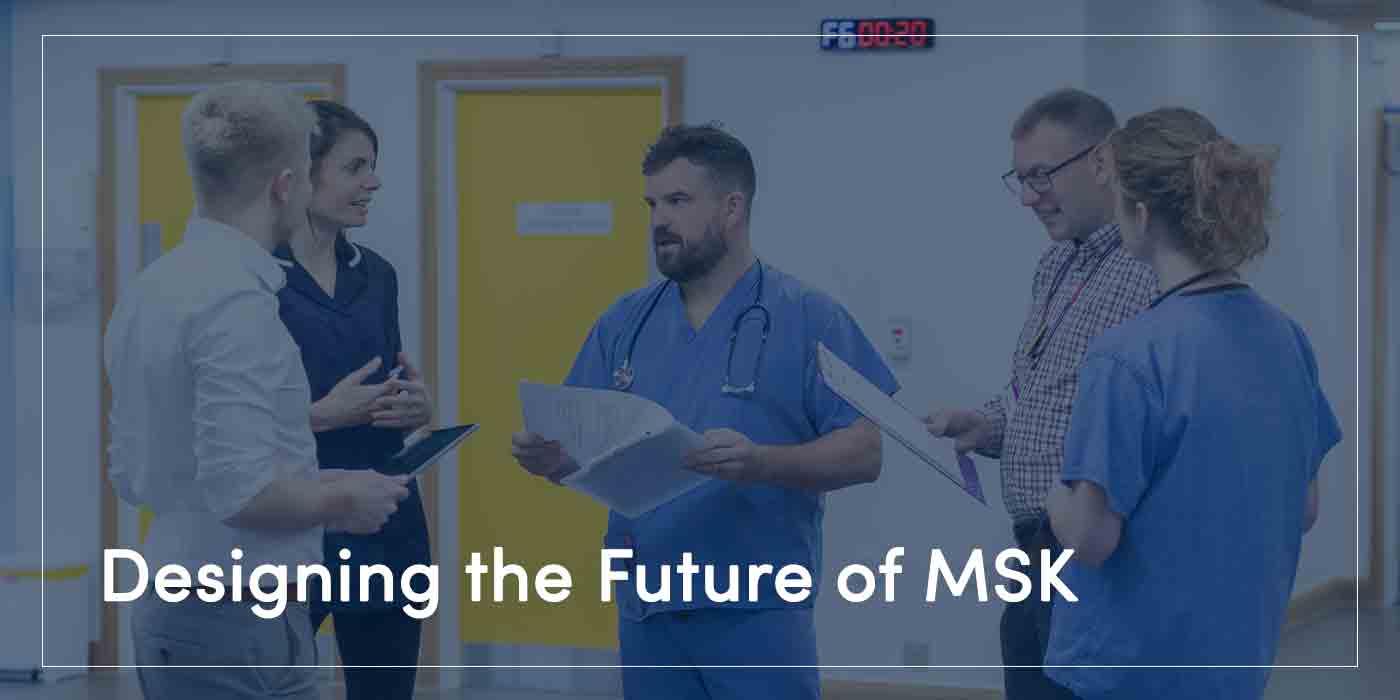Designing the Future of MSK

In this week’s Clinical Insight, we reflect back on one of our team’s attendance at the NHSE event “Designing the Future of Musculoskeletal Care”. These are just reflections, and food for thought.
This event looked to really get into some detail surrounding best care for MSK conditions, leadership, pathways and commissioning. Much of the premise of this was the fact that MSK is now acknowledged as a “Major condition”. That strategy opens with one question;
“How should our approach to health and care delivery evolve to improve outcomes and better meet the needs of our population, which is becoming older and living with multimorbidity?”
This strategy focuses on six groups. In addition to MSK, these include: cardiovascular disease (CVD) (including stroke and diabetes), mental ill health, dementia, and chronic respiratory disease (CRD).
Looking outside the MSK lens
Let’s look at this within the lens of MSK, and then perhaps challenge that to look outside it?
Why should we do that? Well if we continue to look at MSK as an individual problem then the whole concept of dealing with multimorbidity falls at the first hurdle.
Just by creating an MSK conference, the profession suggests that this is an individual problem and, clearly from the above statement, we are dealing with inter-dependencies.
So, the narrative regarding how does the system improve MSK health perhaps needs a broader approach? Why? Because the key metric noted that is measurable, is return to work, and with complexity, the model needs to encourage broader thinking to achieve this effectively.
Non-Communicable Diseases
Let’s look at Non-Communicable Diseases (NCDs) which are significantly linked to the major conditions strategy.
NCDs are non-infectious, long-term medical conditions. When the risk factors are reviewed they are seen as modifiable and non-modifiable. Diet, smoking, physical
inactivity, alcohol use, and wellbeing are modifiable, genetics as an example are not.
Further to that, a broader problem of health inequalities, societal access to healthy food, and opportunities to be more active would be highly relevant.
Limitations of MSK silo
Let’s re-think the MSK question within this lens. Treating MSK disorders is clearly needed and requires specific skills and knowledge to ensure best care management is achieved. However unless the narrative is flipped into management of NCDs, then for every contact we have, we miss that opportunity for greater impact.
When we create a conference or system that is, say, MSK-focused how does this more broadly address these other major conditions? We know as an example that 1 in every 4 adults will have two health conditions to manage. Therefore, creating a silo approach to one condition may be too narrow to be fit for the future.
Reviewing MSK Practice
MSK practice may need to really review how it approaches care if to remain relevant for the global problem of NCDs.
There were a number of discussions regarding triage, algorithms and surgical conversions which felt deductive. Then, in comparison there were discussions surrounding health coaching, community events and physical and mental well-being.
These felt far more progressive, as opposed to finding out what a best model of single point of access would be.
So, there were some great conversations happening, but within the title of MSK, and on reflection in light of the major conditions
strategy and the global NCD challenge, should/could that been a bigger conversation as to how clinicians who are MSK then need to alter?
Shifting our perspective
Perhaps, shifting the advanced practice specialty model perspective in MSK that is accepted currently, it becomes far more open and based on health coaching, population health, knowledge of health inequalities and a broader community systems knowledge (such as social prescribing)?
So, when we think about MSK systems, we might think education, advancing practice and commissioning. Can we apply the model that NCDs are interdependent and MSK is within that model, which needs wider, whole systems, inductive approaches to individual and population healthcare?
This requires clinicians, commissioners and the wider health community to think differently in how they approach education, clinical practice, service designs and the flow of finance.
This event was important, as it placed MSK now as a major condition, but is it time to shift the focus in response to that change and opportunity?